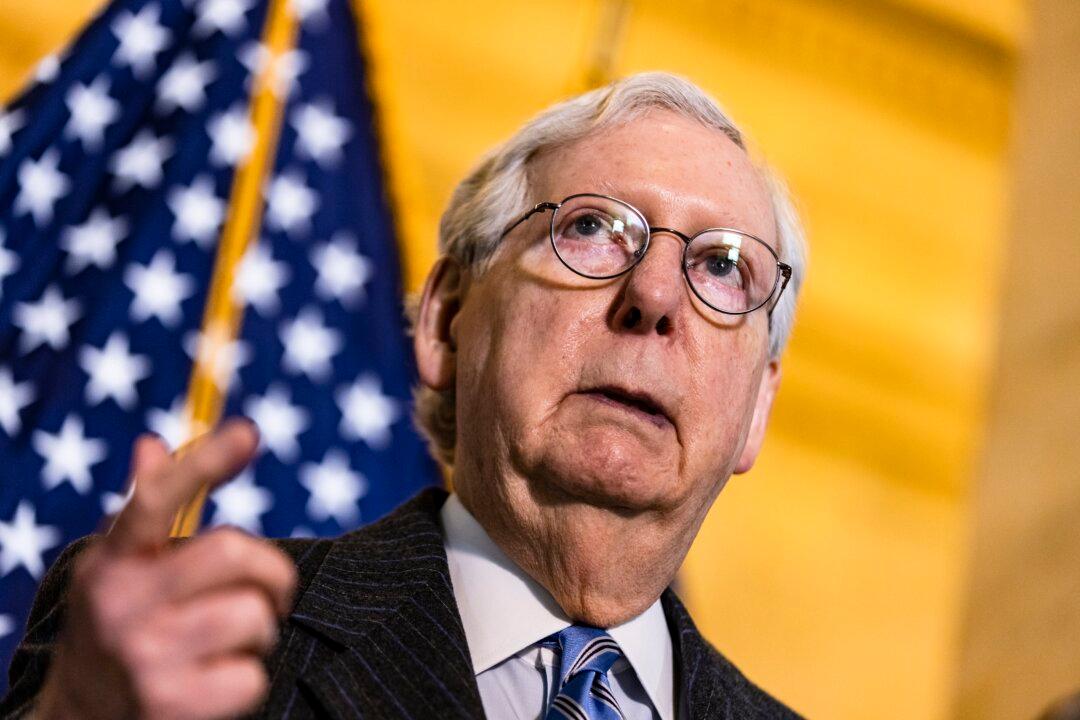Senate Minority Leader Mitch McConnell (R-Ky.) said on April 13 that President Joe Biden’s $2.3 trillion infrastructure plan will face stiff opposition from Republicans if it involves raising taxes by undoing portions of the Trump administration’s landmark 2017 tax reforms.
“The point of this is, this tax bill of 2017—undone—would create an extensive loss of jobs in our country and do exactly the wrong thing and move us in the wrong direction,” McConnell said at a press conference April 13.





